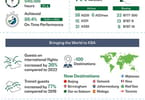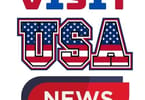In this week’s article, we examine recent setbacks and challenges facing Uber Technologies, Inc. which may slow down its aggressive efforts to dominate ride-hailing markets worldwide. In particular, developments in China and in New York City raise serious questions about Uber’s future.
Travel Law Article: Uber’s Setbacks And Challenges
The juggernaut, Uber Technologies, Inc., may have reached the end of its worldwide efforts to dominate new transportation markets with its unique and popular ride-hailing app. Although Uber has met opposition in the past in both the marketplace and in Court, particularly in California, new developments in China and in New York City may have brought Uber’s nearly unstoppable advance to a halt.
Uber Surrenders In China
It is fair to state that Uber and it’s co-founder Travis Kalanick wanted very much to succeed in China. “Despite intense local competition, the market was one of Uber’s largest by total number of rides. A Chinese operation was the personal project of the Uber co-founder Travis Kalanick, who traveled regularly to the country and gave speeches that borrowed the jargon of Chinese Communist Party officials. His interest was backed up by billions of dollars in investment” [Mozur & Issac, Uber to Sell to Rival Didi Chuxing and Create New Business In China, nytimes.com (8/1/2016)]. But Uber waived the white flag and surrendered by selling Uber China to Didi Chuxing, it toughest rival. Uber thereby joins other American economic armadas such as Facebook, Google and Amazon that have sailed to China on their quest for “world domination” only to eventually withdraw. “Like an imperial armada rolling out from North America’s West Coast, these companies would try to establish beachheads on every other continent. But when American giants tried to enter the waters of China, the world’s largest internet market, the armada invariably ran aground” [Manjoo, Even Uber Couldn’t Bridge the China Divide, nytimes.com (8/1/2016)].
Price-Fixing Conspiracy
Uber is very popular in New York City and elsewhere having captured a significant portion of the taxis, cars for hire and mobile-app generated ride-share services markets. However, a recently filed lawsuit, Meyer v. Travis Kalanick And Uber Technologies, Inc., 2016 WL 4073071 (S.D.N.Y. 2016), presently before federal Judge Jed Rakoff of the Southern District of New York, and alleging that Travis Kalanick and Uber are stifling price competition amongst Uber drivers to the detriment of Uber riders in violation of Section 1 of the Sherman Antitrust Act and New York’s antitrust statute, General Business Law 340 (Donnelly Act), pay present a real challenge to Uber.
The Uber Algorithm
In a technologically modern variation of resale price maintenance the Court noted in denying defendants’ motion to dismiss [Meyer v. Travis Kalanick And Uber Technologies, Inc., 2016 WL 4073071 (S.D.N.Y. 2016)] that drivers using the Uber app do not compete on price and cannot negotiate fares with drivers for rides. Instead, drivers charge the fares set by the Uber algorithm. Though Uber claims to allow drivers to depart downward from the fare set by the algorithm, there is no practical mechanism by which drivers can do so. The Court also noted “Plaintiff alleges that the drivers have a ‘common motive to conspire’ because adhering to Uber’s pricing algorithm can yield supra-competitive prices…and that if the drivers were acting independently instead of in concert, ‘some significant portion’ would not agree to follow the Uber pricing algorithm”.
Remember Ralph Nader?
Defendants, evidently, attempted discover information with which to discredit the plaintiff Spencer Meyer and his attorney. This effort, reminiscent of General Motors’ attempt to discredit Ralph Nader after the publication of his bestselling book, Unsafe at Any Speed, in 1965 [en/wikipedia.org/wiki/Ralph_Nader] backfired and led to Judge Rakoff’s order enjoining defendants, Uber and Kalanick, from using any information gathered by the private investigator they hired, in any manner whatsoever. “It is a sad day when, in response to the filing of a commercial lawsuit, a corporate defendant feels compelled to hire unlicensed private investigators to conduct secret personal background investigations of both the plaintiff and his counsel. It is sadder yet when these investigators flagrantly lie to friends and acquaintances of the plaintiff and his counsel in an (ultimately unsuccessful) attempt to obtain derogatory information about them” [Meyer v. Travis Kalanick And Uber Technologies, Inc., 2016 WL 3981369 (S.D.N.Y. 2016)].
Uber’s Arbitration Clauses
In response to several class action lawsuits filed against it, Uber has sought to enforce mandatory arbitration clauses and class action waivers appearing in its driver agreements [see Uber’s new and enforceable driver contract arbitration clauses, www.eturbonews.com (7/21/2016)]. Such clauses have become quite common in consumer and employee contracts since the U.S. Supreme Court’s decision in AT&T Mobility v. Concepcion, 131 S. Ct. 1740 (2011) and in subsequent decisions [See Dickerson & Chambers, Challenging ‘Concepcion’ in New York State Courts, New York Law Journal (December 29, 2015)] Initially Uber’s efforts were rejected by federal Judge Edward M. Chen of the Northern District of California in Mohamed v. Uber Technologies, Inc., 109 F. Supp. 3d 1185 (N.D. Cal. 2015) and Gillette v. Uber Technologies, Inc., finding unenforceable Uber’s earlier version of its mandatory arbitration clause. However, after some modifications by Uber a new driver agreement containing a mandatory arbitration clause was approved by federal Judge James S. Moody of the Middle District of Florida in Suarez v. Uber Technologies, Inc., 2016 WL 2348706 (M.D. Fla. 2016) and by federal Judge Marvin J. Garbis of the District of Maryland in Varon v. Uber Technologies, Inc., 2016 WL 1752835 (D. Md. 2016), reconsideration denied 2016 WL 3917213 (D. Md. 2016).
Internet Arbitration Clauses
One of the more ominous developments for e-commerce consumers and employees agreeing to be hired through the Internet involves the increasing enforcement by the Courts of onerous contractual terms and conditions, such as mandatory arbitration, forum selection and choice of law clauses, class action waivers and liability disclaimers, often lurking in hyper-links [See Dickerson & Berman, Consumers’ Loss of Rights in the Internet Age, NYSBA Journal (October 2014)]. As noted by Judge Rakoff “Since the late eighteenth century, the Constitution of the United States (has) guaranteed U.S. citizens the right to a jury trial. This most precious and fundamental right can be waived only if the waiver is knowing and voluntary …But in the world of the Internet, ordinary consumers are deemed to have regularly waived this right, and, indeed, to have given up their access to the courts altogether, because they supposedly agreed to lengthy ‘terms and conditions’ that they had no realistic power to negotiate or contest and often were not even aware of. This liberal fiction is sometimes justified, at least where mandatory arbitration is concerned, by reference to the ‘liberal federal policy favoring arbitration’”.
Inadequate Notice
Relying upon California law and applying the reasoning of then-Circuit Judge Sonia Sotomayor writing for the majority in Sprect v. Netscape Communications Corp., 306 F. 3d 17, 35 (2d Cir. 2002)(“[r]easonably conspicuous notice of the existence of contract terms and unambiguous manifestations of assent to those terms by customers are essential if electronic bargaining is to have integrity and credibility”) Judge Rakoff stated “Applying (California) law, the Sprect court found that certain plaintiffs had not assented to a license agreement containing a mandatory arbitration clause because adequate notice and assent were not present on the facts of that case”. After carefully reviewing cases analyzing “clickwrap” and “browserwrap” agreements, Judge Rakoff distinguished Mohamed v. Uber Technologies, Inc., 109 F. Supp. 3d 1185 (N.D. Cal. 2015) and Cullinane v. Uber Technologies, Inc., 2016 WL 3751652 (D. Mass. 2016) and held that “Plaintiff Meyer did not have ‘[r]easonably conspicuous notice’ of Uber’s User Agreement, including its arbitration clause or evince ‘unambiguous manifestation of assent to those terms’”
Justice Dickerson has been writing about travel law for 39 years including his annually updated law books, Travel Law, Law Journal Press (2016) and Litigating International Torts in U.S. Courts, Thomson Reuters WestLaw (2016), and over 400 legal articles many of which are available at nycourts.gov/courts/9jd/taxcertatd.shtml. Justice Dickerson is also the author of Class Actions: The Law of 50 States, Law Journal Press (2016). For additional travel law news and developments, especially in the member states of the EU, see IFTTA.org.
This article may not be reproduced without the permission of Thomas A. Dickerson.
Read many of Justice Dickerson’s articles here.
WHAT TO TAKE AWAY FROM THIS ARTICLE:
- 2016), presently before federal Judge Jed Rakoff of the Southern District of New York, and alleging that Travis Kalanick and Uber are stifling price competition amongst Uber drivers to the detriment of Uber riders in violation of Section 1 of the Sherman Antitrust Act and New York's antitrust statute, General Business Law 340 (Donnelly Act), pay present a real challenge to Uber.
- Although Uber has met opposition in the past in both the marketplace and in Court, particularly in California, new developments in China and in New York City may have brought Uber's nearly unstoppable advance to a halt.
- “It is a sad day when, in response to the filing of a commercial lawsuit, a corporate defendant feels compelled to hire unlicensed private investigators to conduct secret personal background investigations of both the plaintiff and his counsel.






















